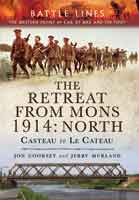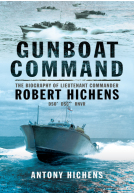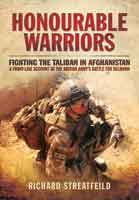The Twenty-Five Days (Hardback)
Imprint: Pen & Sword Military
Pages: 256
ISBN: 9781844150373
Published: 22nd July 2003
Last Released: 1st August 2007
(click here for international delivery rates)
Order within the next 3 hours, 9 minutes to get your order processed the next working day!
Need a currency converter? Check XE.com for live rates
Shortly after the miraculous rescue of the bulk of the British Expeditionary Force in late May/early June 1940, the Poet Laureate John Masefield wrote his impressions of the extraordinary events of the 25 days between 10 May and 3 June. Intriguingly his book was suppressed at the highest level and only a sanitised version was published. Here for the first time is his full account.
John Masefield was Poet Laureate at the time of this volume and consequently he was moved to write many poems and this book in the aftermath of Operation Dynamo in much the same way as he had written "Gallipoli" after his experiences in the Dardanelles campaign.
Michael Thompson
Whilst the book got to the proof stage in 1940, and a newly edited proof copy in 1941 this book fell foul of Whitehall and was banned from publication because it was felt that it might provide ammunition for the Nazi propaganda machine and have a deleterious effect on the home front.
Whilst someone has sneaked out a copy of the 1940 proof, this is the actual 1941 rendition minus a few of the diagrams which they couldn't find. The one that Masefield wanted to publish.
Based on diaries and information from the War Office and other departments of government it tells a basic tale of the whole campaign with the occasional example of personal recollections.
In spite of the obvious security implications the author has obviously had access to many sensitive documents and built a narrative around those documents that he discovered, but as it was written so close to the action he didn't have access to the full picture and this is seen in the text where units "weren't heard from again" presumably because notifications of POW's hadn't been collated.
This is a clear volume that is a great moral builder and praises all the forces involved, but a lot of the individual detail is lost. The collapse of the the Dutch and Belgian forces are detailed and he praises many of the fighting French, whilst decrying those units further south's fighting abilities.
This is not a volume that takes account of the political machinations of many books since published, and nor does it have any reference to atrocities. It is simply a book about the whole campaign that lead to the lifting of so many fighting men from the beaches around Dunkirk despite repeated attacks by the Germans.It does mention all the units involved and pays homage to their bravery against a superior enemy to keep the "corridor" open as long as possible to ensure as many as possible could live to fight another day.
Many other volumes have provided much greater detail on this subject but from one initially written in the later stages of 1940 it is a good read and a volume from a man who experienced war in the Great War and a similar "lifting" of forces from a beach after Gallipoli.
In many ways it reminds me of the classic film "Dunkirk" with John Mills
About Jon Cooksey
The late Jon Cooksey was a leading military historian who took a special interest in the history of the world wars. He was the editor of Stand To!, the journal of the Western Front Association, and an experienced battlefield guide. His many books included The Barnsley Pals, Calais, Harry’s War and, as editor, Blood and Iron.






















